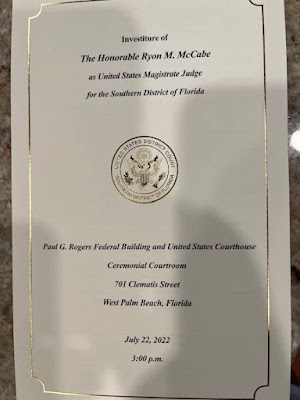For a sitting Justice to give remarks like this is extremely concerning.
In his Rome speech on religious liberty, Justice Alito mocked "foreign leaders" who condemned his opinion overturning Roe v. Wade, including Boris Johnson, Macron, Trudeau, and ... Prince Harry.
— Mark Joseph Stern (@mjs_DC) July 28, 2022
Of Boris, Alito quipped: "He paid the price." https://t.co/NPqalw0KA6 pic.twitter.com/xC0qguZ31n
Here is a Slate piece discussing the bizarre remarks:
It speaks volumes about Samuel Alito that, in the face of international outrage over the impact of this ruling on the lives of millions of women, he centered himself and his own feelings. His snarky little potshots at Prince Harry and Boris Johnson were not so much “jokes” about world leaders as personal petulance over international criticism, cloaked in the insistence that Alito doesn’t care what these world leaders think of him.
But to focus on Alito trolling American women, reproductive justice advocates, his liberal colleagues on the bench, and his international critics is to take his feeble bait. Alito is quite transparent about the fact that he delights in disapproval. He invites it! He welcomes it! His “comedy” is actually just a distraction from his gleeful effort to decimate whatever remaining legitimacy the Supreme Court still possesses in the eyes of the secular, liberal world order. Focus on that fact and there is really nothing hilarious to report from Rome at all.
For starters, there is the breathtaking conflict of interest at work when a justice gives faith-based speeches at faith-based events sponsored by faith-based parties who file briefs before the court. We only found out about this speech a week later when Notre Dame released the video, because the justices have no obligation to publicize or record their public speeches. The Rome event’s sponsor, Notre Dame Law School’s Religious Liberty Initiative, was founded about four months before Justice Amy Coney Barrett joined the Supreme Court in 2020. As Gabe Roth of Fix the Court, a nonprofit that promotes judicial ethics reforms, noted in an email Thursday, RLI and its affiliated professors “have filed amicus briefs in several SCOTUS cases, and they have a near-perfect record.” (Naturally, these professors filed a brief in Dobbs v. Jackson Women’s Health Organization urging the reversal of Roe.) As Roth further pointed out, we won’t know if RLI financed the trip until mid-June 2023, when it must be disclosed under current law. For now, the image of a tuxedo-clad Alito chumming it up with the same conservative lawyers who are involved in cases before the court creates the unseemly impression of judicial indifference toward basic judicial ethics rules.
And he wonders why our citizens don't trust the Court.
The conclusion to the Slate piece:
If you are not very frightened by the prospect of a Supreme Court justice crossing the ocean in order to quote the Gospels to religious adherents of his own faith, who have business before the court, as he excoriates all who do not share his personal view of the primacy of religion as an organizing force in a political democracy, it’s difficult to know what could alarm you. The Framers attempted to strike a careful balance between religious liberty and secular moral values. Alito would like you to know that for the foreseeable future, the latter is the enemy, and will be vanquished and mocked.





